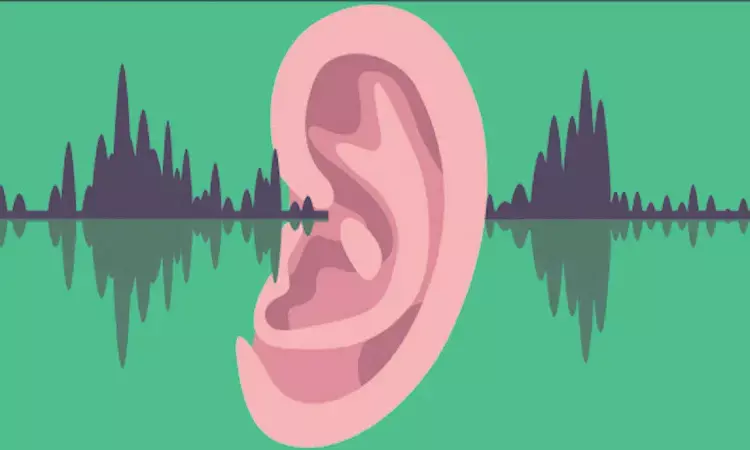- Home
- Medical news & Guidelines
- Anesthesiology
- Cardiology and CTVS
- Critical Care
- Dentistry
- Dermatology
- Diabetes and Endocrinology
- ENT
- Gastroenterology
- Medicine
- Nephrology
- Neurology
- Obstretics-Gynaecology
- Oncology
- Ophthalmology
- Orthopaedics
- Pediatrics-Neonatology
- Psychiatry
- Pulmonology
- Radiology
- Surgery
- Urology
- Laboratory Medicine
- Diet
- Nursing
- Paramedical
- Physiotherapy
- Health news
- Fact Check
- Bone Health Fact Check
- Brain Health Fact Check
- Cancer Related Fact Check
- Child Care Fact Check
- Dental and oral health fact check
- Diabetes and metabolic health fact check
- Diet and Nutrition Fact Check
- Eye and ENT Care Fact Check
- Fitness fact check
- Gut health fact check
- Heart health fact check
- Kidney health fact check
- Medical education fact check
- Men's health fact check
- Respiratory fact check
- Skin and hair care fact check
- Vaccine and Immunization fact check
- Women's health fact check
- AYUSH
- State News
- Andaman and Nicobar Islands
- Andhra Pradesh
- Arunachal Pradesh
- Assam
- Bihar
- Chandigarh
- Chattisgarh
- Dadra and Nagar Haveli
- Daman and Diu
- Delhi
- Goa
- Gujarat
- Haryana
- Himachal Pradesh
- Jammu & Kashmir
- Jharkhand
- Karnataka
- Kerala
- Ladakh
- Lakshadweep
- Madhya Pradesh
- Maharashtra
- Manipur
- Meghalaya
- Mizoram
- Nagaland
- Odisha
- Puducherry
- Punjab
- Rajasthan
- Sikkim
- Tamil Nadu
- Telangana
- Tripura
- Uttar Pradesh
- Uttrakhand
- West Bengal
- Medical Education
- Industry
Covid-19 Infection may affect audio-vestibular system of patients, finds Study

The novel coronavirus disease-2019 (COVID-19) spread rapidly around the world and was declared as a global pandemic by WHO. Common clinical symptoms include dry cough, fever, headache, sore throat, shortness of breath, diarrhea, vomiting and abdominal pain. Anosmia and taste changes are common symptoms.
Facial paralysis, sudden hearing loss and cases of vertigo among otologic symptoms have also been reported in relation to COVID-19. However, the effects of COVID-19 on hearing and the vestibular system remains unclear.
Audiovestibular system of people with COVID-19 infection may be affected, reports a study recently conducted by a team of researchers at the Inonu University, Faculty of Medicine, Department of Otorhinolaryngology, Malatya, Turkey.
The report is published in the American Journal of Otolaryngology.
The study aimed to investigate the effects of COVID-19 infection on hearing and the vestibular system.
The authors included a total of twenty-six patients whose treatment had been completed and who had no previous hearing or balance complaints. Patients diagnosed with the disease by PCR were included in the study.
Patients with at least one month of illness were included in the study. The hearing of patients was evaluated with transient evoked otoacoustic emissions (TEOAE) and pure-tone audiometry.
Bedside tests, the European Evaluation of Vertigo scale (EEV), Video Head Impulse Test (vHIT), Ocular Vestibular Myogenic Evoked Potential (oVEMP), Cervical Vestibular Myogenic Evoked Potential (cVEMP) and Videonystagmography (VNG) tests were applied to evaluate the vestibular system.
It was observed that a statistically significant difference was found between the COVID-19 positive and control groups according to the mean values of the 4000 Hz and 8000 Hz in both the right and left ears (p < 0.05).
Furthermore, no statistically significant difference was found in the other frequencies and transient evoked otoacoustic emissions . No statistically significant difference was found between the COVID-19 positive and control groups in terms of their normal or pathological Videonystagmography saccade, optokinetic and spontaneous nystagmus values (p > 0.05).
The normal and pathological Videonystagmography head shake values were found to be significantly different between the COVID-19 positive and control groups (p < 0.05).
The researchers this concluded that the high frequencies in audiometry in the COVID-19 positive group were worse than those in the control group. This study shows that the audiovestibular system of people with COVID-19 infection may be affected.
Dr. Nandita Mohan is a practicing pediatric dentist with more than 5 years of clinical work experience. Along with this, she is equally interested in keeping herself up to date about the latest developments in the field of medicine and dentistry which is the driving force for her to be in association with Medical Dialogues. She also has her name attached with many publications; both national and international. She has pursued her BDS from Rajiv Gandhi University of Health Sciences, Bangalore and later went to enter her dream specialty (MDS) in the Department of Pedodontics and Preventive Dentistry from Pt. B.D. Sharma University of Health Sciences. Through all the years of experience, her core interest in learning something new has never stopped. She can be contacted at editorial@medicaldialogues.in. Contact no. 011-43720751
Dr Kamal Kant Kohli-MBBS, DTCD- a chest specialist with more than 30 years of practice and a flair for writing clinical articles, Dr Kamal Kant Kohli joined Medical Dialogues as a Chief Editor of Medical News. Besides writing articles, as an editor, he proofreads and verifies all the medical content published on Medical Dialogues including those coming from journals, studies,medical conferences,guidelines etc. Email: drkohli@medicaldialogues.in. Contact no. 011-43720751


